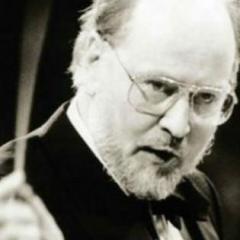Search the Community
Showing results for tags 'music theory'.
-
Here is my spoiler-free analysis of the new themes from The Last Jedi: http://www.filmmusicnotes.com/new-musical-themes-and-their-meaning-in-the-last-jedi/ Enjoy!
- 16 replies
-
- episode viii
- music theory
-
(and 2 more)
Tagged with:
-
Hi all, I've now completed a blog post analyzing the musical meaning of the themes from The Force Awakens. http://www.filmmusicnotes.com/themes-and-their-musical-meaning-in-star-wars-episode-vii-the-force-awakens/ Enjoy!
- 13 replies
-
Not exactly a newbie, but the last time I was on here was around 2006 and that account is long, long gone. I've seen a few interviews with JW regarding the Indiana Jones scores, and not surprisingly he says the Nazi themes throw back to adventure movie scores of the 1940s, and refers to the "seventh degree of the scale on the bottom." Here's an example: He makes the reference around 3;33. Anyone have an idea what he means by this? The closest I can come up with is this: the cue we hear right after that statement is Toht's entrance into Marion's pub, where the low brass plays a G, played by an arpeggiated diminished seventh chord (Ab-B-D-F), which would want to resolve to A, so there's a chord constructed on the seventh degree of A Major. But somehow this just doesn't strike me as what he means. I know there's sensitivity here to getting into theoretical analysis of JW scores, but I'm at somewhat of a loss, so would be great to get someone else's perspective to what he means.
- 23 replies
-
- indiana jones
- music theory
-
(and 1 more)
Tagged with:
-
Below is a link to my brief analysis of thematic transformation in Rozsa's monumental score for Ben-Hur. There's just so much to talk about in this score, I could have been here writing this post all year. Instead, I focused on three of the main leitmotifs in the score: Esther, Friendship, and Hatred. Enjoy! http://www.filmmusicnotes.com/thematic-transformation-in-rozsas-score-for-ben-hur/



